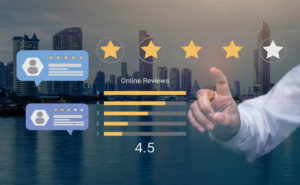According To IMF, Your Credit Score Should Be Based On Your Web History
Fintech is rapidly evolving, and it’s possible that your credit score may one day be dependent on your online history. “Financial Intermediation and Technology: What’s Old, What’s New?” is a new blog post on the International Monetary Fund (IMF) blog that draws attention to this potential privacy nightmare.
The report points out that the modern world’s growth in technology has provided new sources of “soft data” that may be utilized to assess creditworthiness. It suggests that your credit score should be based on your web history.
Some digital businesses (ISPs, Facebook, Google, Apple, and others) have enough soft data about their consumers to possibly establish creditworthiness in the same way that banks utilize hard data like confirmed income, job status, and assets, according to the report.
What Is Soft or Hard Data?
Hard data is quantifiable data, something that is tangible. Such as income, job status, assets, etc. Bank or credit lenders use hard data of an individual to find out the creditworthiness and reliability of a borrower.
Soft data, on the contrary, is data that isn’t quantifiable. Such as personal and private opinions and feelings of individuals. Social media platforms such as Facebook, LinkedIn, and Instagram allow users to express their opinions.
Google also keeps track of the private searches of its users. This data is meant to be private and is not supposed to be handed over to lenders. Creditors cannot use this data against their customers as hard data does not consist of subjective information of a customer.
Creditors keep track of your hard data when you apply for a loan, a mortgage, a student loan, etc.
Why not use Hard data?
According to the authors who wrote the report, “hard” credit ratings have two major flaws.
First, when individuals most need assistance during a downturn, banks tend to restrict loan availability. Second, it might be difficult for businesses and individuals who do not have a credit history to start building one.
So, if you do not possess a prior credit history, lenders tend not to trust you with their money, decreasing your creditworthiness.
Hence, the authors suggest replacing it with soft data for the people who do not have a prior credit history already available in their hard data. And the authors support the idea that your credit score should be based on your web history.
How Would It Affect You If Your Internet Usage Determines Your Credit History?
The researchers appear to be focused on the potential benefit of using this sort of data to make financial decisions in providing banking services to the currently unbanked.
Let’s take a rational look at this, starting with a simple imitation of how soft data like internet history is “scored” connected to creditworthiness. It’s logical to suppose that this data would be handled by machine learning algorithms rather than individual humans assessing our online behavior.
While the latter may appear to be more intrusive of personal privacy, the former is just as dangerous to the planet and civil rights in general. While there are grassroots movements worldwide to resist the use of inherently biased black-box algorithms to make key choices, there is still a long way to go.
The study report by the IMF is not a formal IMF recommendation but rather a snapshot of fintech’s present trend. The report’s authors have successfully exposed the route we’re on: it’s time to change direction.
The first big flaw with this plan is that there is no proof that AI is capable of doing this activity or will be in the near future.
Despite working for one of the industry’s pioneers, Microsoft AI researcher Kate Crawford had some sharp words for the present state of artificial intelligence in an interview with The Guardian earlier this summer:
“AI is neither artificial nor intelligent. It is created from natural resources, and people perform the functions that make the systems look independent.”
This AI component would completely breach user privacy, which should be the utmost priority of any platform that hosts such a massive number of users. Even if the AI element of this equation was fully functional, privacy concerns remain a huge problem.
Although companies are experimenting with tracking many kinds of “soft” customer behavior, the notion of connecting your credit rating to your web or online history is strikingly similar to China’s social credit score, which is currently issued to every person. Saying the wrong words or visiting the incorrect websites may lead to family members being denied loans or entry to specific social gatherings in that nation. While the proposed approach is not overly harsh, it is nonetheless a step in the wrong direction.
The United States lacks the legal framework necessary to implement a credit monitoring system of this nature. Any bank or financial institution that wants to utilize AI to assess applicants’ creditworthiness based on their browsing and buying history must conduct frequent audits to ensure no bias against any group.
The researchers who wrote the article for IMF also hint toward using the online shopping histories of users to collect more soft data for their credit history. This breaches privacy and overlooks the fact that people buy things online that they may not want to buy in a shop. This can either be just a random shopping cart or something personal they would want to order that would be getting tracked.
Final Word
As much as it has been flourishing lately and as much as technology has taken control of many things, AI is still not ready for this kind of credit search. It cannot put human emotions and opinions and then categorize them by an algorithm because humans are entirely subjective.
While machine learning brings remarkable improvement in making data very easily accessible, it cannot do justice to people who apply for loans or a mortgage. This, in general, comes off as a bad idea to even consider replacing hard credit data with soft credit data.






